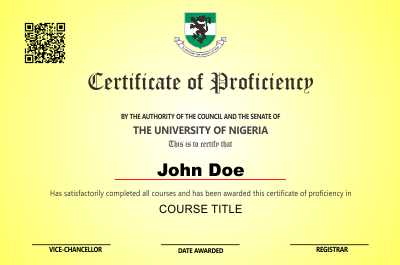Energy Efficiency, Finance and Electric Power Management
HomeCoursesEnergy Efficiency, Finance and Electric Power Management
About this Course
The power sector can be defined as an energy sector that consists of both, electricity
Generation plants (and combined heat and power (CHP) plants), transmission and distribution infrastructure, and whose primary business is to generate, transport and sell electricity (or electricity and heat in the case of CHP) to the public.
Key players in the sector in Africa include utilities, independent power producers (IPPs), transmission system operators and distributors, rural electrification agencies and funds, as well as ministries and regulators (for policy design and policy implementation—through regulation—respectively).
Other players include manufacturers and consulting engineers who supply equipment and services for the generation, transmission and distribution of electric power by utilities and other power producers.
This course teaches and discusses the issues related to management, finance and regulation of the players in this sector, including production, transmission, and distribution of power as well as services related to the production, installation, overhaul and maintenance of power equipment and relatedconsulting engineering, as well as their leverage with energy efficiency. The International Renewable Energy Agency’s publications on “Renewables and Electricity Storage, A Technology Roadmap for REmap 2030”, and “Investment Opportunities in West Africa, Suitability Maps for Grid Connected and Off-Grid Solar and Wind Projects” will form part of student’s course materials.
Learning Outcomes & Objectives:
At the end of this module, the students will:
- Gain a deeper in sight into Regulatory Energy Efficiency Technology benefits
- Become equipped with Energy Finance options
- Get equipped with Power distribution methods, especially in rural areas
- Know more about independent power plants, bundling and unbundling concepts
- Be able to address reforms in the power sector
- Know about Cogeneration of Energy
- Learn the Energy Services approach for developing rural areas
- Get acquainted with Energy Auditing
- Become acquainted with the International Renewable Energy Agency’s publications on “Renewables and Electricity Storage, A Technology Roadmap for REmap 2030”, and “Investment Opportunities in West Africa, Suitability Maps for Grid Connected and Off-Grid Solar and Wind Projects”.
- And become capable of developing Energy Finance models
| Course Code | UNN/OC/0053 | |
| Course Start Date | Started | |
| Course Duration | 3 Months | |
| Dedication | 2 hours per week | |
| Number of Modules | 10 | |
| Level | Basic | |
| School offering course | UNN Online School of Oil and Gas | |
| Language | English | |
| Video/Audio Media | None | |
| ₦ | Course Fee | 250000.00 |
Certificate of Proficiency

A Certificate of Proficiency is awarded to you at successful completion of courses designed to prepare you for a new career or enhance your skill set. This empowers you to be more productive and marketable in today's global market.
Associated Programs
Pages: 1
UNN Online Program
Renewable Energy, Technology and Efficiency
This program teaches the fundamentals, of the different renewable energy technologies, wind, solar, Bioenergy, hydro, and geothermal energy. It offers an in-depth overview of renewable energy technologies and applications.
Program Courses: 5
Course Prerequisites / Requirements
Graduates of Universities are eligible to register for Post Graduate Diploma programs, and complete/pass all the modules. NCE and HND holders with a minimum of 3 years working experience, especially in the petroleum industry will be considered. WAEC holders or equivalent, can enroll and do as many individual modules as they wish.


